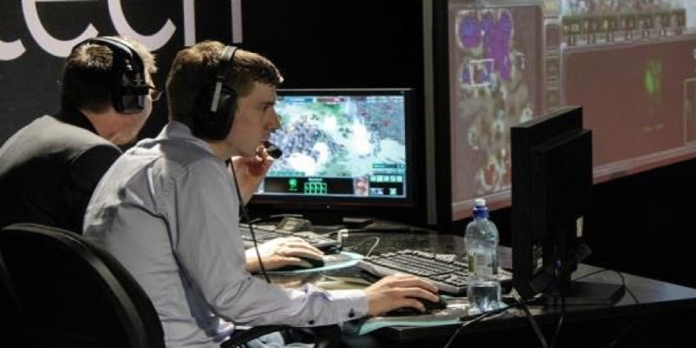Here we can see, “How to Stream a PC Game on Twitch with OBS”
Twitch and other game streaming platforms are more popular than ever. Streaming is simple, whether you want to let your friends watch you play a game or aim to attract a larger audience.
Only public streams are supported on Twitch.tv. You can use Steam’s built-in Broadcasting option to restrict game streaming to your steam buddies if you want to broadcast a private stream to only a select pal.
Before reading this instruction, make sure you know what game you want to stream on Twitch. Twitch support is built into some PC games. However, for most games, you’ll need a third-party streaming tool like Open Broadcaster Software to broadcast your gameplay (OBS). That’s what we’re going to do today.
Finally, Twitch suggests broadcasting with pretty powerful gear. Twitch recommends an Intel Core i5-4670 or AMD comparable processor, 8 GB of DDR3 SDRAM, and Windows 7 or later. If your stream is choppy, you’ll probably need a faster CPU and possibly more RAM. The upload bandwidth of your Internet connection is also a factor, and more upload bandwidth is required for higher-quality streaming.
Step 1: Get a Twitch.tv Stream Key
We’re using Twitch to broadcast because it’s the most popular platform. Sure, you could host your stream and broadcast directly to your viewers, but streaming a game to a website like Twitch and allowing that website to rebroadcast it to your viewers uses significantly less upload bandwidth. Other websites, such as YouTube Gaming, could also be used.
- To begin, create a free Twitch account with which you will stream the game. Go to Twitch.tv and sign up for an account.
- After you’ve created an account, go to the top-right corner of the Twitch homepage and click your account name. Then go to “Dashboard” and click the “Stream Key” heading.
- To acquire your private key, click the “Show Key” button.
- To stream to your channel, you’ll need this key. Anyone with the key can stream to your channel, so don’t give it out to strangers.
Step 2: Set Up OBS Game Capture Mode
OBS (Open Broadcaster Software) is a free, open-source video recording and broadcasting application perfect for Twitch streaming. OBS can record screencasts and store them in a local video file, but it can also live broadcast to Twitch or YouTube Gaming.
You can also use OBS to add extra features to your streams, such as live video from your webcam, picture overlays, and other visual effects.
- Download, install and start Open Broadcaster Software.
- Your screencast is divided into “scenes” and “sources” by OBS. The scene is what your viewers see in the final film or stream, and that video’s sources are what make it up.
- You could have a scene that shows the contents of a game window, or you could have a scene that shows the contents of a game window with your camera superimposed over it. You may create separate scenes for each game you want to stream and flip back and forth between them as needed.
- The default scene will be enough for our needs right now.
Add a Game Capture Source
- You’ll need to start by adding a game capture source to your scene. Select Add > Game Capture from the Sources menu by right-clicking in the box.
- Choose “Create New,” give the capture any name you like, and then click “OK.”
- Select “Capture any fullscreen programme” from the “Mode” menu, and OBS will recognize and capture the full-screen games you’re playing. Select “Capture specific window” in the mode box and select the application if you’re playing a windowed game. Ascertain that the game is active for it to display in this list.
- The other choices can be tweaked now or changed later. Right-click the game capture source in your Sources list and select “Properties.”
- To close this window, click “OK.”
- Start a full-screen game now. You should see a glimpse of it in the main OBS window if you Alt+Tab out of it (or if you have multiple monitors).
- If you don’t see a preview, right-click in the window’s center and ensure “Enable Preview” is selected.
- When you Alt+Tab out, some games may not show a preview. In some circumstances, this is typical; you should try it with a local recording to determine if your current settings are compatible with the game in the issue.
- Click “Start Recording,” play your game for a few seconds, and then check to see if the video file created works.
If Game Capture Doesn’t Work: Try Display Capture Mode
- Unfortunately, Game Capture mode does not work with all games. If you’re having trouble using OBS to record or broadcast a specific game, try Display Capture mode. This captures and broadcasts your full screen, including your Windows desktop and any open windows.
- To use Display Capture mode, make sure OBS isn’t configured to display your game capture source. You can either delete the game capture source from the list by right-clicking it and selecting “Remove,” or conceal it by left-clicking the eye symbol to the left of it.
- Now, much as you did with the game capture source, add a new source. Select Add > Display Capture from the right-click menu in the “Sources” box. Click “OK” and give the source whatever name you like.
- Select the display you want to add (if you have one computer monitor, there will only be one display) and click “OK.”
In the main OBS window, you’ll see a preview of your desktop. Whatever you see on your screen will be streamed by OBS. If Game Capture fails, this may be a better option.
Choose Which Audio You Want to Broadcast
By default, OBS collects your desktop audio (anything playing on your PC, including any game sounds) and microphone audio. These will be included in your stream.
Use the Mixer panel, which displays at the bottom of the OBS window, to alter these settings. To mute either form of audio, for example, click the speaker symbol. Drag the slider to the left or right to change the volume. Select “Properties” from the gear icon to select the audio device.
Add Video From Your Webcam
- Add another source to your scene if you want to overlay a little video from your webcam on top of the game feed. Add > Video Capture Device by right-clicking inside the Sources box. Click “OK” after naming your video capture device.
- If you have a webcam, OBS should automatically detect it. Choose the webcam device you want to use and make any necessary adjustments here. The default options should be sufficient. When you’re finished, click “OK.”
- In the OBS preview window, your camera video will be superimposed over your game or desktop. Drag and drop the video to the desired location with your mouse, and click and drag the corners to resize your camera frame to the desired size.
Ensure the Video Capture Device displays above your main game or displays capture source in the Sources box if you don’t see your webcam video. In your live video, sources on top of one another in the list are on top of one another. As a result, if you move the video capture device to the bottom of the sources list, it will be hidden beneath your game stream. Rearrange the sources in the list by dragging and dropping them.
Step 3: Set up Twitch Streaming
- After you’ve finished setting up your stream, you’ll need to link OBS to your Twitch channel. To reach OBS’s settings window, click the “Settings” button in the bottom right corner of the screen or go to File > Settings.
- Select “Streaming Services” as your Stream Type and “Twitch” as your service from the “Stream” category. Copy and paste your account’s stream key into the “Stream key” field from the Twitch website. In the “Server” box, choose the server that is closest to your location. When you’re finished, click “OK” to preserve your changes.
- If you wanted to stream to a different service, such as YouTube Gaming or Facebook Live, you’d select it in the “Service” box and fill in the required information.
- From this window, you can also change your streaming preferences. Choose your bitrate and encoder using the choices under “Streaming” by selecting the “Output” icon. To see how the default settings operate, you should probably try streaming with them first.
If the video isn’t smooth, try decreasing the bitrate. Your machine and Internet connection determine the best configuration. According to OBS, experiment with several settings until you discover the one that works best for your system.
Step 4: Start Streaming!
- Once OBS is linked to Twitch , click the “Start Streaming” button in the bottom right corner of the OBS window to begin streaming.
- On the Twitch Twitch.tv dashboard page, you can see a preview of your stream, give it a title, and set your “Now Playing” status while streaming. To access your dashboard, click your username in the top-right corner of the Twitch screen and select “Dashboard.”
- Send them to your channel page to share your broadcast with others. It’s Twitch Twitch.tv/user, where “user” refers to your Twitch handle.
More information on OBS’s many settings and features may be found in the official OBS manual.
Conclusion
I hope you found this information helpful. Please fill out the form below if you have any queries or comments.
User Questions:
- What am I going to need to stream on my PC?
Twitch recommends a PC with an Intel Core i5-4670 or AMD comparable processor and 8GB of RAM. While your graphics card isn’t as important for broadcasting, Twitch recommends being DirectX 10 compatible. However, if you want to play a modern game, you’ll need DirectX 11 or 12.
- Will you need two computers to stream?
A current gaming PC should be sufficient for streaming your gameplay to the internet, but a second machine can make the process go more smoothly. You can even reuse outdated hardware if it fulfills the basic requirements for the streaming platform you want to use.
- Will my PC be able to handle streaming?
If you want to broadcast PC games, you’ll need a graphics card that can handle the streaming program as well as the game you’re intending on playing. While we advocate broadcasting from a desktop if, at all possible, you can go live from a laptop if you have the requisite equipment.
- A Beginner’s Guide to Streaming – Updated for 2020!
- Ultimate beginners guide to streaming with OBS (Open Broadcaster Software) with either Twitch .TV or Own3d.TV
Ultimate beginners guide to streaming with OBS (Open Broadcaster Software) with either Twitch.TV or Own3d.TV from leagueoflegends



